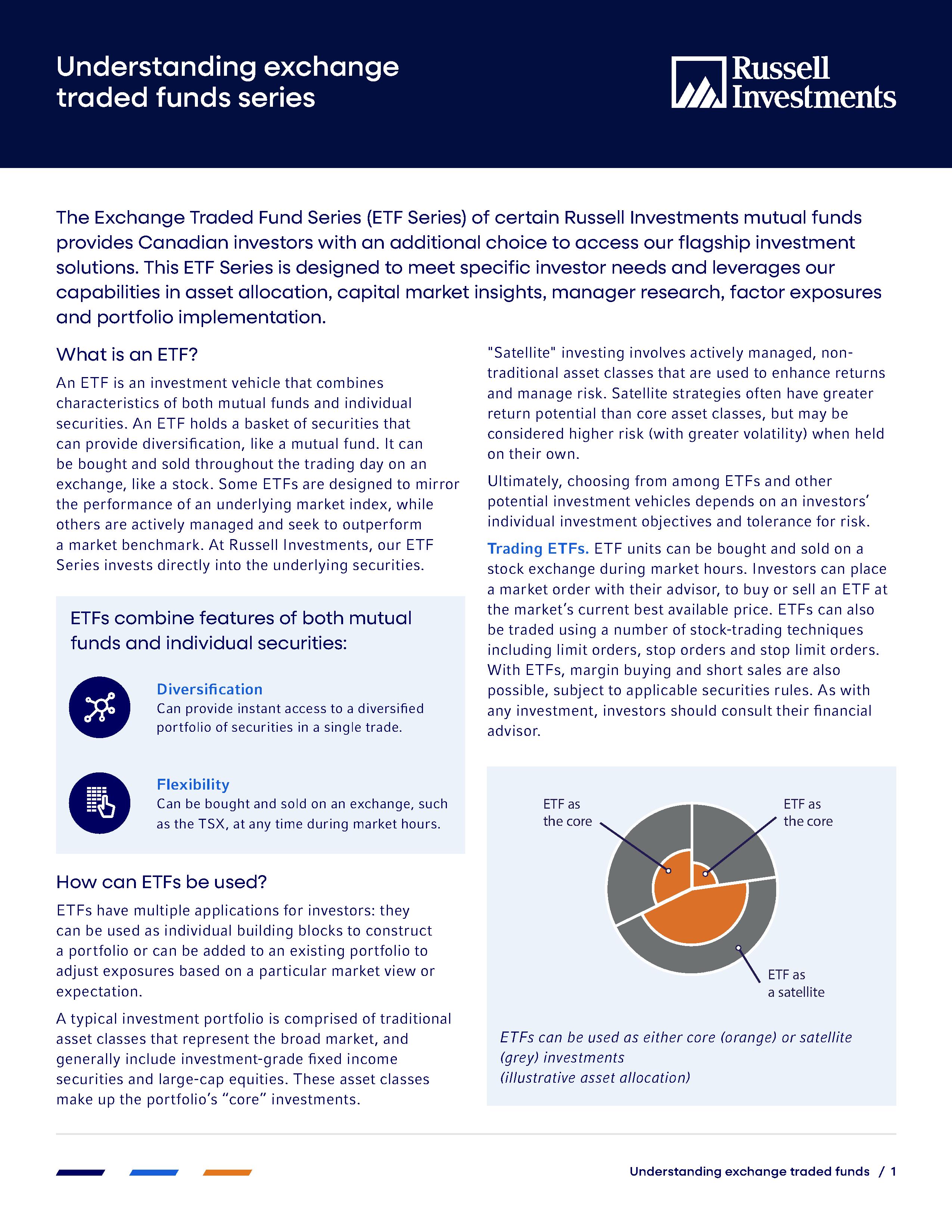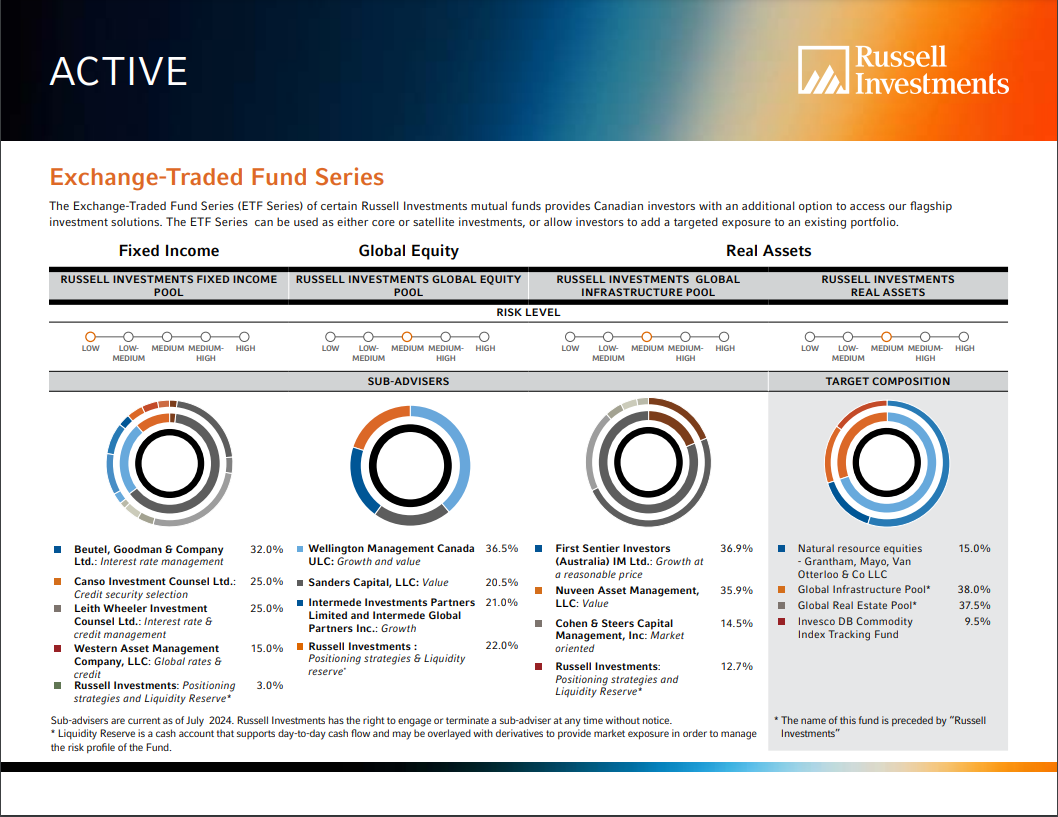Exchange-traded funds (ETFs)
Learn about this investment vehicle and the unique benefits of Russell Investments’ ETF Series investment solutions.
Russell Investments’ Exchange-Traded Fund Series (ETF Series) provides Canadian investors with an additional optionality for accessing our flagship investment solutions. Used as either core or satellite investments, our ETF Series is designed to meet specific investor needs by leveraging our strengths in asset allocation, capital market insights, manager research, factor exposures and portfolio implementation.
ETFs 101: THE BASICS
What is an ETF?
ETFs are investment vehicles that combine characteristics of both mutual funds and individual securities. Similar to mutual funds, they hold a basket of securities that can provide portfolio diversification. ETFs can be bought and sold throughout the trading day on an exchange, such as the Toronto Stock Exchange (TSX), like a stock. Some ETFs are designed to mirror the performance of an underlying market index, while others are actively managed and seek to outperform a market benchmark. At Russell Investments, our ETF Series invests directly into the underlying securities.
How are ETFs used?
Complement diversified portfolios

Combine individual ETFs to build a broadly diversified portfolio.
Target precise exposures

Gain precise, consistent exposure to a specific market segment.
Use core/satellite strategies

Construct a portfolio using ETFs as either core or satellite investments.
Asset allocation:
ETFs can provide exposure to a diversified portfolio of financial assets in a single trade, giving investors access to commodities, stocks and bonds.
Diversification:
Access through ETFs to a broad range of industries, investment categories, and countries can help diversify investor portfolios and reduce overall portfolio risk.
Flexibility:
Trading like stocks, ETFs can be bought and sold on an exchange at any time during market hours.
Transparency:
Many ETFs provide full transparency on daily holdings, allowing investors to see exactly what assets they are invested in.
ETF Series investment solutions
RUSSELL INVESTMENTS' ETF SERIES
Access our diversified equity, fixed income and real assets solutions through four ETF options:

